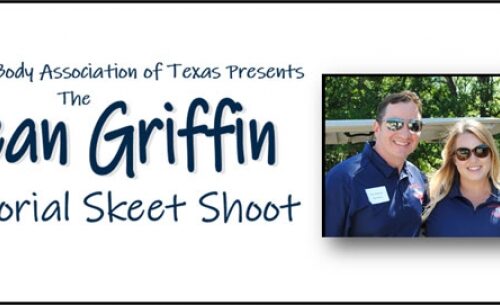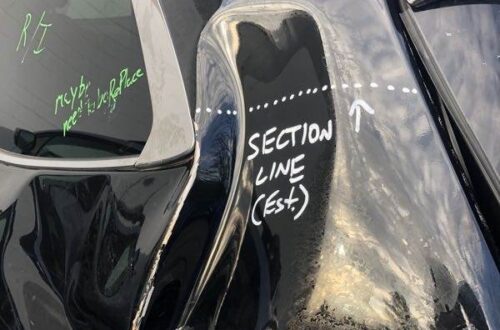VT Shop Owner Scores Big Short-Pay Win Against Nationwide

At the end of June, Mike Parker, owner of Parker’s Classic Autoworks in Rutland, VT received a phone call from his attorney Robert McClallen informing him that they’d finally won their short-pay lawsuit against Nationwide. “I was like, ‘Finally, hallelujah!” Parker shared. “There were definitely some useful points made in the case that could be used by shops suing for short-pays in the future, especially against Nationwide – since the Supreme Court hearing utilized a five-panel jury, this could set a precedent that shops’ attorneys would want to point out.”
Initially filed in 2015, Parker’s case allowed him to stand in the shoes of 70 customers whose cars had been repaired between 2009 and 2014, suing for just over $40,000. The lawsuit explained, “Each insured, in consideration of being able to take possession of his or her vehicle, assigned [Parker’s] the right to proceed against [Nationwide] in order to collect the money due and owing for repair of the insured vehicle.”
In those 70 instances, Nationwide paid the amount it believed it owed rather than the amount billed by Parker’s, failing “to pay the full amount of the repair to the insured,” according to the lawsuit. Parker provided an analogy: “If you insured a 15-ingredient cake and your dog ate it, the insurance company can’t decide they’ll only pay for 13 ingredients and not compensate for the baker’s time.”
Parker continued, “Vehicle insurance companies owe what’s necessary to safely restore vehicles to their pre-accident condition. Nationwide essentially tried to argue that they only owed for parts, not labor. Everything we do is necessary. This is trying to get what was owed to begin with to bring the car back to pre-loss condition.”
Parker’s case against Nationwide was first heard during a 2017 two-day trial in Rutland County Superior Civil Court where the jury decided in Parker’s favor, awarding the shop $41,737.89. When Nationwide moved for the court to pass judgement under a different part of the VT Rules of Civil Procedures, Rutland Unit Superior Court Judge Helen Toor overturned the jury’s ruling, stating Nationwide’s policies only required it to pay “an amount
[defendant]
determined was sufficient to do the repairs” and that the insureds could not sue Nationwide for money “entirely within [Nationwide’s] discretion to award.”
After appealing the case, Parker’s lawsuit was escalated to the VT Supreme Court who heard his case in October 2018 and issued their ruling in a 14-page report released on June 28, 2019, written by VT Supreme Court Associate Justice Karen Carroll. The unanimous opinion ordered the $41,737.89 verdict restored.
VT’s Supreme Court called Toor’s decision “an incorrect interpretation of the law.” The report explained, “The court construed the insurance policy as requiring defendant to pay ‘an amount [defendant] determined was sufficient to do the repairs.’ It reasoned that the insureds could not have sued defendant for sums that were entirely within defendant’s discretion to award. Therefore, the court explained, plaintiff could not sue defendant as the insureds’ assignee.”
However, according to the VT Supreme Court, Nationwide’s policies did not state that, and the June 28 report clarified, “The claims in this case arise under defendant’s Century II Collision Insurance Policy (‘the policy’). Under the policy, defendant promises to pay for ‘direct and accidental loss of, or damage to’ an insured vehicle. However, this is subject to a limitation-of-liability provision mandating that ‘direct and accidental loss’ cannot exceed ‘the cash value of the auto or its damaged parts at the time of loss.’ The calculation of ‘cash value’ where the limitation-of-liability clause is invoked includes ‘consideration of fair market value, age, and condition of the property in question at the time of loss.’ The policy specifies that the insurer has three methods from which to choose to satisfy its obligation to an insured to pay for the ‘loss’ or ‘damage’: pay the insured directly, repair the vehicle, or replace the vehicle. Here it is undisputed that defendant elected to pay the insureds directly. The parties dispute how much each insureds’ ‘loss’ or ‘damage’ was. And the policy does not specify how, if at all, an insured may contest the valuation that defendant makes for a claim.”
Carroll further wrote, “To whatever extent the trial court concluded that defendant had fully satisfied its contractual obligation under the policy because defendant made payments on the collision claims in some amount, this was error. Whether the amounts paid by defendant satisfied defendant’s obligation to its insured was the central disputed issue here. And it is undisputed that defendant did not obtain a release of claim or otherwise satisfy the elements of a complete defense foreclosing the insureds, and thus plaintiff’s, ability to contest the sufficiency of the payments. As to the second issue, the fact that the insureds’ vehicles were fully repaired and returned does not answer the question of whether the costs incurred by the repair shop to do so were covered under the policy.”
In regards to Nationwide’s claim that they were only required to pay for parts, not labor, the Supreme Court’s report disagreed: “Labor is an indispensable component of the cost to make a repair. Moreover, defendant’s opening statement and the only witness that defendant offered at trial effectively admitted that the policy covers, to some degree, labor costs for making a repair… This case is about an insurer’s alleged failure to compensate its insureds, as promised in the policy. If defendant paid less than was owed—i.e., the ‘direct and accidental loss of or damage to’ the vehicle—then that unpaid sum is, to adopt the definition of ‘financial loss’ advanced by defendant in its briefing, a ‘decrease in amount, magnitude, or degree’ that ‘relate[s] to [the] finances’ of the insureds.”
While she admitted that she was still reviewing the details of the decision, Marilyn Miller, Executive Director of the Vermont Vehicle and Automotive Distributors Association, told the Vermont Digger, “I think this is a positive thing, certainly for independent [collision shops] and for anybody in the business of repair when an insurance carrier is not willing to reimburse you what is a legitimate parts and labor cost.”
The VT Supreme Court’s decision against Nationwide makes the fifth lawsuit Parker’s Classic Auto Works has pursued and won against a national insurance company, though this is the first to progress to the Supreme Court. Parker said, “I’m five for five cases we’ve won, and we’ve settled out of court for quite a few more. Insurers tend to settle after we win a case. We now have four pending cases to prepare for, including cases against Progressive and Travelers. They were all waiting to see what was going to happen. They were all hoping we were going to lose this.”
Parker first started learning about how to receive proper compensation from insurance companies during legislative seminars with attorney Erica Eversman, hosted by the Coalition for Collision Repair Excellence (CCRE). He shared, “I started talking to my lawyer, Robert McClallen, in 2007 and told him to get ready to take this on. We filed our first lawsuit against Nationwide in 2010, and in 2015, we won a three-year fight against AllState on behalf of 70 consumers for $53,000.”
To shops contending with similar short-pay issues, Parker advised, “Contact your attorney and do the research. Make sure you’re using the right documentation. You can’t just jump into it – that’s key. Do your homework, and you’ll be in a much better position to receive what’s owed to you.”


